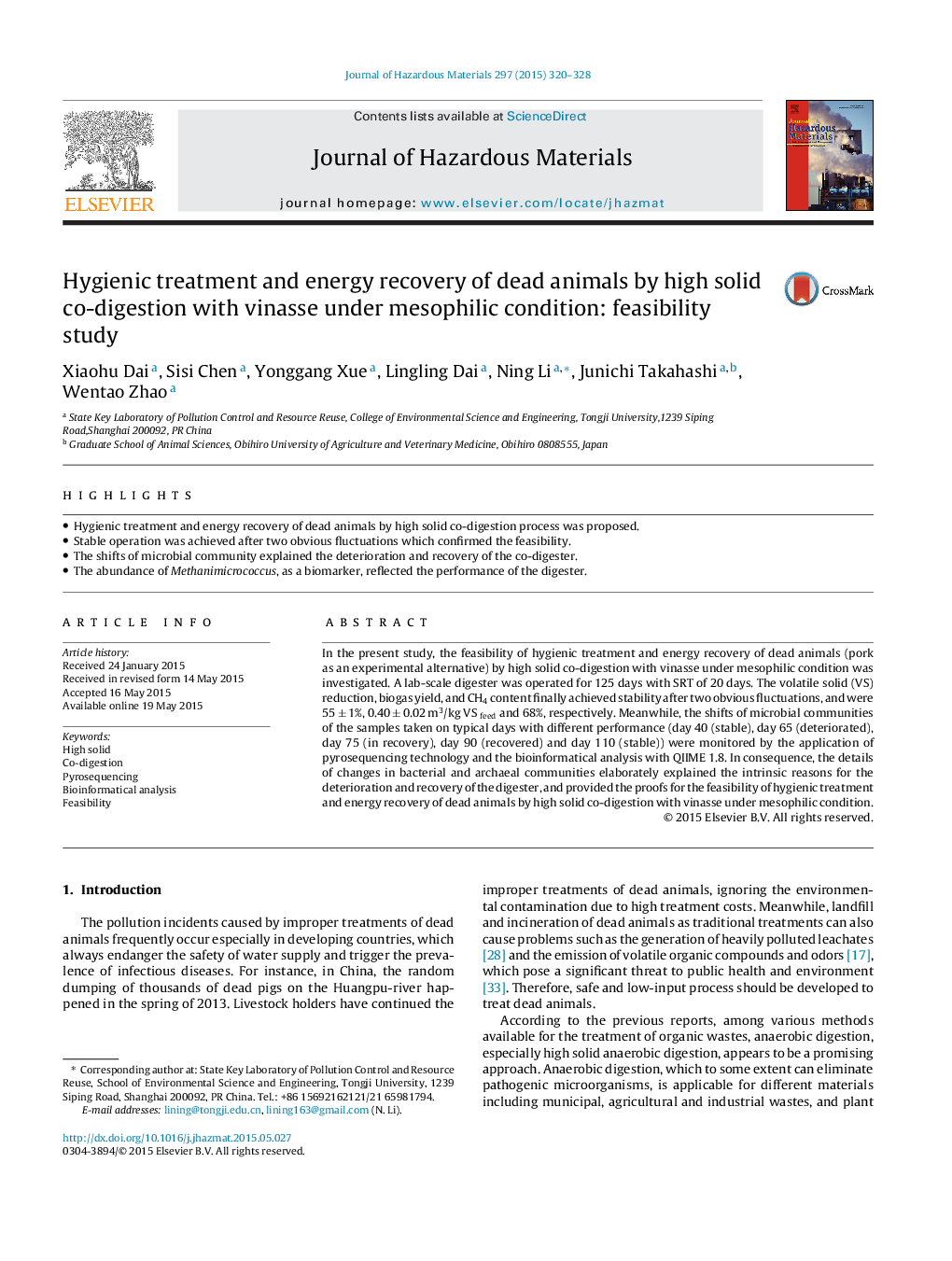| Article ID | Journal | Published Year | Pages | File Type |
|---|---|---|---|---|
| 6971010 | Journal of Hazardous Materials | 2015 | 9 Pages |
Abstract
In the present study, the feasibility of hygienic treatment and energy recovery of dead animals (pork as an experimental alternative) by high solid co-digestion with vinasse under mesophilic condition was investigated. A lab-scale digester was operated for 125 days with SRT of 20 days. The volatile solid (VS) reduction, biogas yield, and CH4 content finally achieved stability after two obvious fluctuations, and were 55 ± 1%, 0.40 ± 0.02 m3/kg VS feed and 68%, respectively. Meanwhile, the shifts of microbial communities of the samples taken on typical days with different performance (day 40 (stable), day 65 (deteriorated), day 75 (in recovery), day 90 (recovered) and day 110 (stable)) were monitored by the application of pyrosequencing technology and the bioinformatical analysis with QIIME 1.8. In consequence, the details of changes in bacterial and archaeal communities elaborately explained the intrinsic reasons for the deterioration and recovery of the digester, and provided the proofs for the feasibility of hygienic treatment and energy recovery of dead animals by high solid co-digestion with vinasse under mesophilic condition.
Related Topics
Physical Sciences and Engineering
Chemical Engineering
Chemical Health and Safety
Authors
Xiaohu Dai, Sisi Chen, Yonggang Xue, Lingling Dai, Ning Li, Junichi Takahashi, Wentao Zhao,
